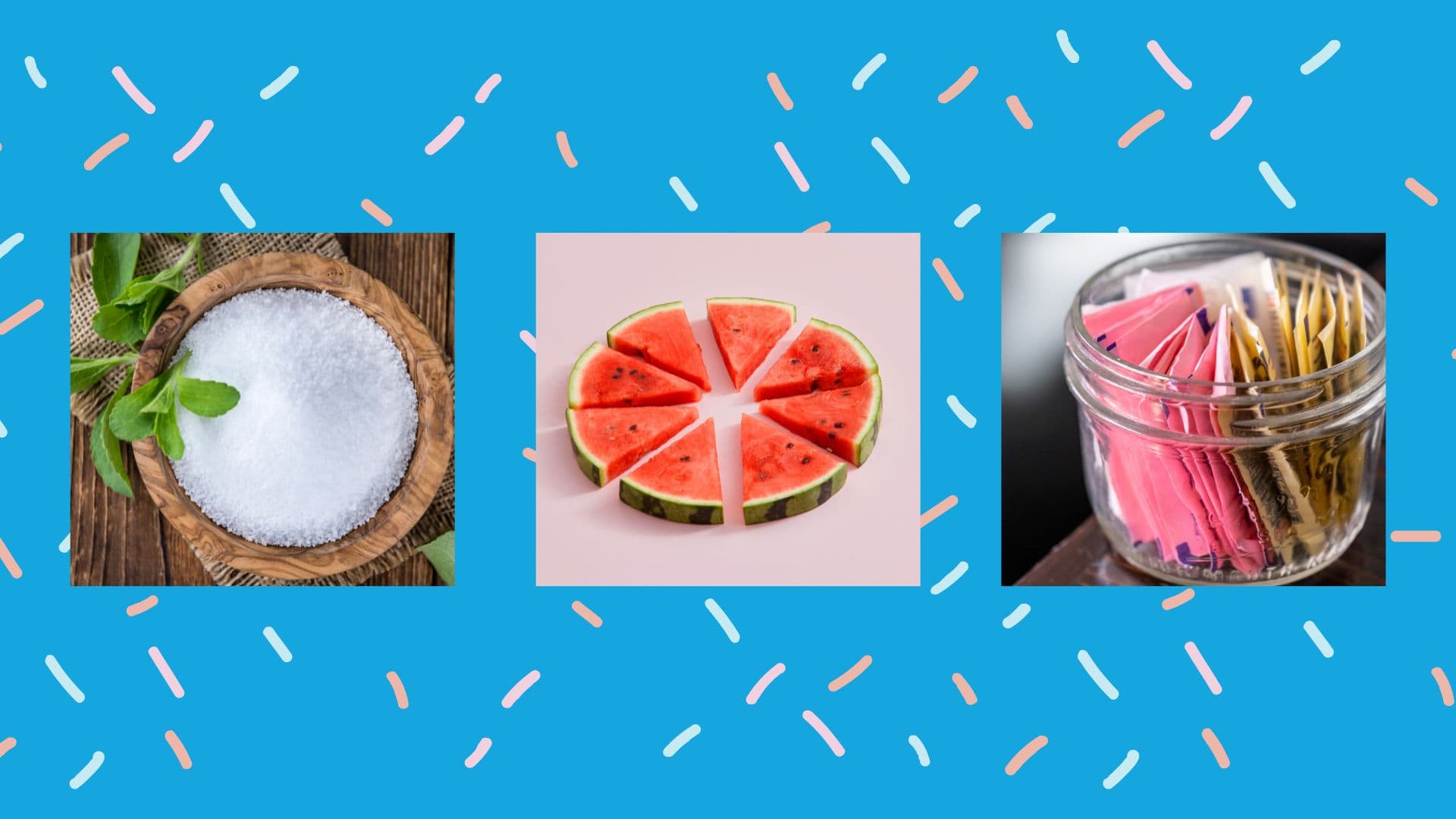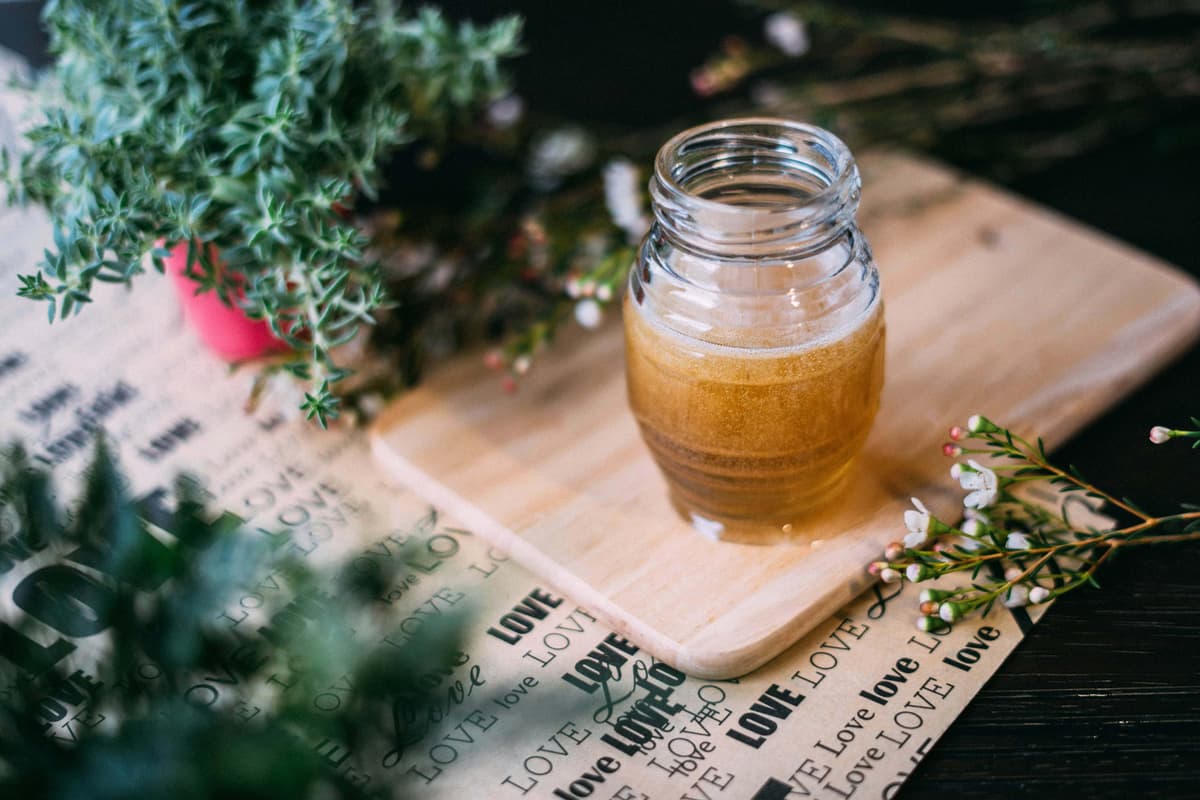
Nearly everyone delights in a sweet treat. From Gummi Bears to chocolate-covered pretzels to ice cream, sugary foods bring us comfort and happiness. However, the calories add up, and an excess of added sugar can play a part in weight gain or trigger serious health problems such as diabetes and heart disease.
The best way to reduce the amount of added sugar consumed is to eat more natural sugars, which are found in fruits or dairy. However, there are also alternatives to added sugars. Many of these alternatives are less processed, so they don’t lead to weight gain or blood sugar spikes.
Sugar alternatives can help some people enjoy sweetness without excess calories. And if used in moderation, they can be part of a healthy diet.

Sugar is a type of carbohydrate, and like all carbohydrates, it provides a source of energy in our diet. However, although carbohydrates are nutrients the body uses in large amounts, sugar is not an essential macronutrient- the nutrients we need in larger quantities that provide us with energy.
There are two types of sugars in the foods we eat: naturally occurring sugars and added sugars. Sugars occur naturally in fruit (in the form of fructose) and dairy products (in the form of lactose). Added sugars or added sweeteners can include any sugars or caloric sweeteners that are added to foods or beverages during processing or preparation, for example, putting sugar in your coffee, or sprinkling sugar on your cereal. These can include natural sugars such as white sugar, brown sugar, and honey, as well as other caloric sweeteners that are chemically processed, such as high fructose corn syrup.
There is a big difference between naturally occuring sugar and added sugar, as added sugar has no nutritional benefits. According to John Hopkins Medicine, consuming a large amount of added sugar has no nutritional benefits, and too much added sugar can lead to health problems including high blood sugar, insulin resistance, metabolic syndrome, dental issues such as cavities, increased triglycerides, obesity, and type 2 diabetes.
Sweeteners that contain natural sugar like fruit juice, honey, molasses, and maple syrup have some nutritional benefits. Fruit has fiber, vitamins, and antioxidants, and raw honey and maple syrup can contain antioxidants and minerals like iron, zinc, calcium, and potassium.
Major sources of added sugars in the American diet are sugary beverages such as soda, sweet tea, and sweetened coffee, desserts like donuts and baked goods, and sweet snacks like candy. Sugar is also added to sauces and condiments like barbeque sauce and ketchup.

Sugar substitutes taste sweet but don’t contain sugar. They have fewer calories than sugar, and some have no calories at all. Natural sweeteners are considered healthier than conventional sugar because these sweeteners usually contain more vitamins, minerals, antioxidants, and other bioactive molecules.
The Mayo Clinic suggests that sugar substitutes could lower your risk of getting tooth decay and cavities, and might help manage weight in the short term for adults and children with overweight or obesity. But it’s not clear whether sugar substitutes can help people manage their weight over the long term.
Just because alternatives have more nutrients than conventional sugar does not mean that frequent consumption of these sweeteners is encouraged. The health benefit from different types of sweeteners depends on how you are eating it. No matter the source, consuming sugars that do not occur naturally in food is associated with obesity, diabetes, heart disease, high blood pressure, and other chronic health problems. Over time, it’s most important to eat a healthy diet and get exercise.
Sugar alternatives fall into three categories: artificial sweeteners, sugar alcohols, and novel sweeteners.
Artificial sweeteners are created from chemicals in a lab, and can be 200 to 700 times sweeter than table sugar. What makes these sweeteners appealing is that they don’t contain calories or sugar. Because artificial sweeteners are much sweeter than table sugar, they can be used in smaller amounts to achieve the same level of sweetness. People may use them in place of sugar to consume fewer calories, or to better control their blood glucose if they have diabetes or prediabetes. Studies on people have shown these products to be generally safe if they are consumed in amounts within the acceptable daily intake.
However, they also don’t have beneficial nutrients like vitamins, fiber, minerals, or antioxidants and are regulated by the U.S. Food and Drug Administration (FDA) as food additives.
Some FDA-approved artificial sweeteners are acesulfame potassium (Ace-K), Advantame, aspartame, neotame, saccharin, and sucralose.According to Harvard’s School of Public Health, they can be found in foods like frozen desserts, yogurt, candies, baked goods, chewing gum, breakfast cereals, gelatins, and puddings.
Similar to artificial sweeteners, sugar alcohols are created synthetically. They’re considered natural because they are derived from plants, but they are chemically reformulated for use. Like artificial sweeteners, sugar alcohols are used in many processed foods, however, they’re not as sweet. According to Harvard Health publishing, sugar alcohols are about 40% to 80% as sweet as natural sugar, whereas artificial sweeteners like aspartame are about 200 times sweeter. And they have about 25% to 75% fewer calories per gram than sugar.
Sugar alcohols do not spike blood sugar or insulin levels and don’t cause tooth decay like other types of sugar. However, they are poorly digested and may cause digestive distress if consumed in excessive amounts.
You can usually spot many sugar alcohols on ingredient lists by “-ol” at the ends of their names. Examples include sorbitol, xylitol, lactitol, mannitol, erythritol, and maltitol.
Sugar alcohols can appear in products like sugar-free cookies, candies, ice cream, beverages, and chewing gums.

Novel sweeteners are derived from natural sources and provide many of the benefits of natural sweeteners like fruit or honey. Novel sweeteners are not a significant source of calories or sugar, so they don’t lead to weight gain or blood sugar spikes. They are also typically less processed.
Two popular novel sweeteners are stevia and monk fruit. Stevia, a plant leaf extract, is hundreds of times sweeter than conventional sugar, so only very small amounts are needed for intense sweetness. This zero-calorie sweetener has a low glycemic index, so it doesn’t impact insulin or blood sugar levels. While that makes it a good sweetener for weight management and diabetes, it can become addictive and may trick the body into wanting more.
Monk fruit is also a zero-calorie, low-glycemic-index sweetener. It is high in antioxidants, offers possible anti-cancer effects, and has a favorable effect on blood glucose regulation. As monk fruit is free of calories and carbs, some research suggests it may support better blood sugar management.
Artificial sweeteners can be a short-term way to help people manage their weight and reduce their use of sugar. In general, sugar substitutes are safe for healthy adults. Although sugar substitutes can be considered a healthier alternative to added sugars, they can be addictive.
If you want to limit refined sugar in your diet, whole foods, such as fruits and vegetables, are the best dietary choices, as they contain a mix of nutrients for the body. Add a mashed banana to oatmeal, or blend dates into a smoothie. However, if you absolutely must use an added sweetener, consider a novel sugar substitute like stevia, and try to limit the amount of added sugars you consume–skip the soda, energy drinks, and sweet teas.